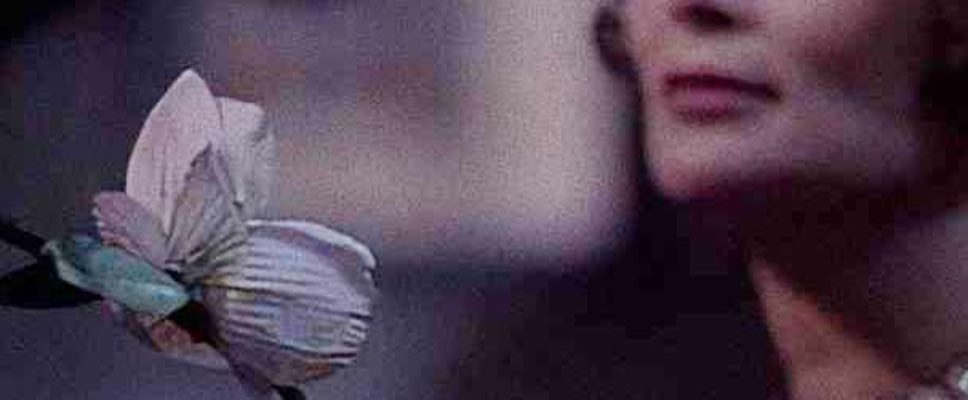Teresa Reviews “Magnolia Blossom” (1982)
Teresa reviews “Magnolia Blossom” (1982) from The Agatha Christie Hour and says this early story from Christie’s career too thin to be enjoyed.
Fidelity to text: 2 thieves
![]() The plot remains. Other than the three leads, everyone else onscreen was added.
The plot remains. Other than the three leads, everyone else onscreen was added.
Quality of film on its own: 1 1/2 thieves
![]() When the other characters were added, the screenwriter neglected to make anyone compelling or provide understandable motivations.
When the other characters were added, the screenwriter neglected to make anyone compelling or provide understandable motivations.
Read more of Teresa’s Agatha Christie movie reviews at Peschel Press.
Also, follow Teresa’s discussion of these movies on her podcast.

In the 1926 short story, you get three characters: the wealthy Theodora, Richard, her shady businessman husband, and Vincent, her would-be lover. No one else. The plot meanders, stranding plot points here and there, including the bombshell complication (not seen in the adaptation) that Vincent is in London not because he’s selling oranges for his South African farmers’ association but because he was asked to investigate Richard’s firm.

Theo’s not very bright either. She vacillates between glittering society hostess and lost damsel, swayed by the moment and inconsistent loyalties. She doesn’t love her husband. After spending two weeks in Vincent’s company, she was prepared to desert Richard and the mansion she owns and flee to South Africa with a stranger. Then, she reads an evening newspaper story about Richard being accused of fraud and flees back to him.

The script tried to address Theo’s vacillations with some guff about duty above all. We get words but nothing to show where she thought her duty lay. To the staff of her grand mansion? Bates, the butler, reminds her that he’s served her family his entire life. I assume other servants have done so as well. Yet she was going to let them down, so that wasn’t it. Was it duty to her family home and the garden she loves? Clearly, no loyalty there. Her family back in Devon? No, they don’t exist. The memory of a beloved nanny exhorting young Theo about the importance of duty to keep the world sane and chugging along? Nope. Is she concerned about what friends, relatives, or the press would say about her pouring salt on Richard’s wounds by fleeing to South Africa with another man? Not that either.
Why is duty suddenly so important? Because the script says so.

What we get is the garden that’s as fake as the romance. It looks like the set designer went down to Hobby Lobby and bought whatever fake flowers looked bright and colorful and cheap, not paying any attention to whether or not a given flower comes in that color or if they bloom at the same time.
I couldn’t stop myself from shouting at the TV. The other colors were bad enough but blue! Those vibrantly blue flowers never existed in nature, even in the minds of copywriters for plant catalogs who lie with gay abandon. Never believe a plant catalog when it tells you a flower is a true, rich, deep blue. It’s a lie. They’re purple. Or gray. Or greenish. If a flower isn’t a bachelor’s button or a Himalayan Blue Poppy, it’s not blue no matter what the advert claims.
To compound the error, the magnolia blossoms the camera panned across not only looked like they were the cheapest polyester fakes glue-gunned to bare twigs, they were blue. Pale, icy blue. Magnolia flowers do not come in blue. They are white, creamy blush, delicate yellows, the palest pinks and the most flamboyant magentas. Not blue. Magnolias bloom in the spring but I’d lay odds that most of the flowers in Theo’s garden were not spring-bloomers. No, they all came from Hobby Lobby where blooming seasons and verisimilitude in plant species color are unimportant.
This is particularly irritating because in England, gardening is a competitive sport! You cannot tell me that the set designer didn’t know better. At least the flowering Clivia looked good. And real.
The other item that looked both good and real was Theo’s dress at the climax. This was a gorgeous knockoff of a Callot Soeurs dress in true magnolia blossom colors: white, creamy blush, the palest of pinks. In the text, Agatha spells it Caillot but Callot Soeurs is probably who she was thinking of. Operated by the Callot sisters, they were one of the great haute couture houses in the 1910s and 1920s.
At least raving about the flowers and Theo’s dress took my mind off the script. In order for the story to work, it needed about six more passes. It also needed to be longer. I can’t believe I’m saying this considering how tedious it was, but at 51 minutes, it felt padded with scenes of sparkling dinner parties crammed with sparkling conversation and fashionable evening wear. Those scenes did nothing to explain why Theo felt such an overpowering sense of duty that she left Richard without a backward glance and then had to return to him.
Those scenes could have set up a heartrending moment when Theo tells Vincent that their dinner guests would eviscerate Richard even more than Scotland Yard will when the fraud department arrives and so she has to rush to his side. Those scenes implied that Richard was enjoying a torrid affair with a hot redhead but again, no follow-through other than Theo saying, “I know you cheated.” But we didn’t watch him carrying on with the redhead so there’s the distinct possibility that Theo lies when it suits her.

This could have been so much better if thought had been put into explaining why Theo behaved the way she did. Instead, you’ll get fake flowers and irrational behavior. Skip it and watch something better.


